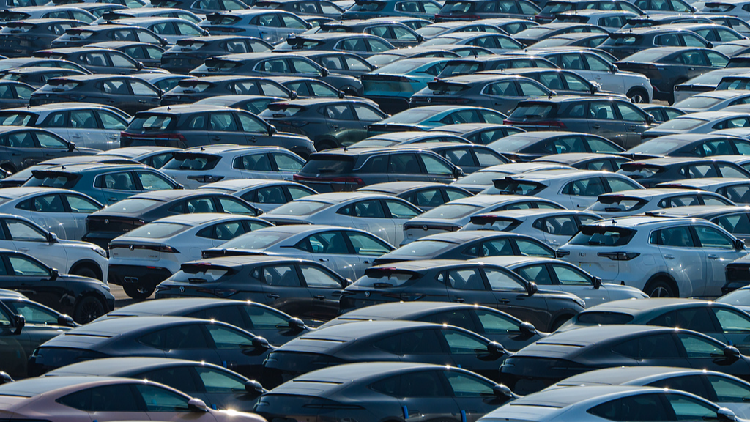China, UK, Germany Voice Discontent with EU Tariffs on Chinese EVs
China, the UK, and Germany have voiced their discontent regarding the European Union's tariffs on Chinese electric vehicles (EVs).

Just over a year after initiating its anti-subsidy probe, the European Commission will introduce additional tariffs varying from 7.8 percent for Tesla to 35.3 percent for China's SAIC, in addition to the EU's standard import duty of 10 percent on cars.
These additional tariffs were formally approved and published in the EU's Official Journal on Tuesday, meaning they will come into effect on Wednesday.
The commission, responsible for EU trade policy, has articulated that these tariffs are necessary to address what it claims are unfair subsidies, including preferential financing and grants, as well as access to land, batteries, and raw materials at prices below market value.
**China's Response**
In response, a spokesperson from China's Ministry of Commerce stated Wednesday that China does not approve of or accept the European Commission's decision to impose additional tariffs on EVs made in China.
The spokesperson emphasized that China has consistently highlighted that the EU's anti-subsidy investigation is unjust, riddled with various compliance issues, and is a protectionist initiative masked as "fair competition." The statement was released on the ministry's website.
China has already appealed to the World Trade Organization's dispute settlement mechanism regarding this matter and intends to continue taking all necessary actions to protect the legitimate rights and interests of Chinese companies.
**Opposition from the UK and Germany**
A report by PMG on Tuesday revealed that the UK business chief is "open" to rejuvenating key trade discussions with China. Jonathan Reynolds, the UK's secretary of state for business and trade, remarked that "trade is an area 'where cooperation is possible with China.'"
Earlier in October, Reynolds mentioned during the International Investment Summit in London that the UK does not plan to follow the EU's lead in imposing import duties on Chinese electric vehicles.
Meanwhile, Germany's leading auto industry group cautioned on Tuesday that the EU's decision to impose significant tariffs on Chinese electric cars increases the risk of a "far-reaching trade conflict."
Hildegard Mueller, president of the German Association of the Automotive Industry, stated that the additional tariffs are "a step backwards for free global trade and thus for prosperity, job preservation, and growth in Europe." She warned that these countervailing tariffs elevate the risk of major trade conflicts and called for further discussions, emphasizing that "the door for negotiations remains open."
In a separate remark, BMW's CEO Oliver Zipse expressed concern that the EU's action would "harm the business model of globally active companies, limit the supply of electric cars to European customers, and thus slow down decarbonization in the transport sector."
**Negotiation Continues**
China's Ministry of Commerce has indicated that the EU is still open to ongoing discussions regarding price commitments for Chinese-made electric vehicles. The statement asserted, "China always advocates the resolution of trade disputes through dialogue and consultation, and had made the utmost efforts to this end."
Currently, both parties' technical teams are participating in a new round of consultations. It is hoped that the European side will engage constructively with China, adhering to the principles of "pragmatism and balance," and taking into account each other's core concerns in an effort to reach a mutually acceptable solution promptly to prevent an escalation of trade tensions.
Thomas Evans for TROIB News
Discover more Science and Technology news updates in TROIB Sci-Tech












